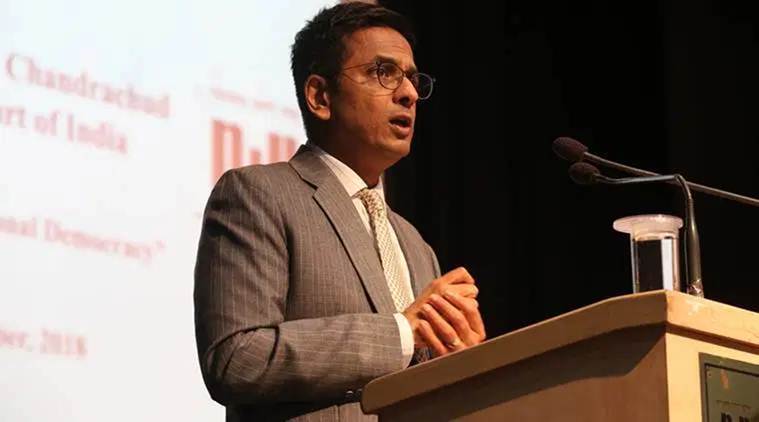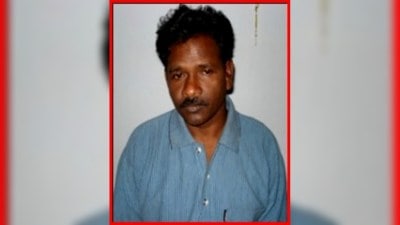Daily scrutiny of the actions of those in power is the long-term solution to incidents like what happened in Unnao and in Hyderabad, Supreme Court Judge Justice D Y Chandrachud said Tuesday adding that answers to all problems did not lie with courts.
He was delivering a lecture on the theme “Adding Nuance to Human Rights Discourse’ at an event organsied by the International Institute of Human Rights Society on the occassion of Human Rights Day here.

Justice Chandrachud said “India’s excellent democratic record shows that in our seventy-plus years of independence, regular general elections and the peaceful handover of power have been the overriding norm.
Opinion | Instant injustice
Story continues below this ad
“However, we must ask ourselves whether close to a century of democratic rule has reduced the political, social and economic exclusion faced by many of our citizens” and added, “I think the most telling pictorial representation that we have seen in the last week is the representation of two facets of India, the Unnao rape survivor lying burnt in a field and the four men lying dead in a field shot by the police”.
Former Chief Justice of India R M Lodha who also spoke on the occassion too referred to the killing of four men accused of the rape and murder of a veterinary surgeon in Hyderbad and said: “when a Telengana Minister says that reconstruction of crime scene was on instruction from above and police did what they were asked to do, it raises a big question; are we junking due process and justice system?”
He added that demand for similar treatment to those accused of the Unnao rape and murder and calls for lynching of rapists shows that “atmosphere of mob mentality is prevailing in the society” and people are going back to 17th century Hammurabi’s code “eye for eye, tooth for tooth and nail for nail”.
Justice Chandrachud underlined the importance of “participative processes” in securing human rights, and said that “recognising the value of deliberative processes in exposing weak arguments, identifying the misuse of power and ensuring that human rights are lived beyond the cloistered halls of courts and universities adds a powerful element to our human rights discourse. It is a reminder that we will not wait to be shocked by a terrifying tale of human rights abuse, but rather scrutinise the actions of those in power every day to ensure that such abuses never occur in the first place”.
Story continues below this ad
“That according to me will be the long-term answer to those visual images I spoke about…”, he added.
Justice Chandrachud also touched upon the controversy over tree felling in Aarey for constructing a car shed for the Mumbai Metro.
He said that “as a resident of Mumbai, I know just how dangerous and often impossible it can be to get from one end of the city to another during rush hour. The need for a safe and affordable public transport system is undoubtedly urgent. Yet at the same time, an approach that ignores the environmental impact of development is unconscionable in a world where every day we see the dangerous effects of climate change”.
Stating that “in resolving such competing rights, we can see how deliberative democracy and the courts together can lead to the protection of human rights”, the judge added that “even before any decision was taken to fell trees, a public hearing was conducted” and “the hearing was scheduled for a mere half an hour but went on for more than two hours as huge numbers of residents, environmental activists and tribal communities turned up to participate”.
Story continues below this ad
In an apparent pat for the Bombay High Court, he said “when the High Court was approached, it took measures to further the deliberative processes, ordering a second hearing and directing the municipal corporation to publicly notify the proposals so citizens could object. Over 33,000 objections were received. Where the deliberative mechanisms were ignored or overruled, the Court had to step in to ensure that irreparable harm was not caused while important social issues were discussed through the existing structures of governance”
He added that “after the recently concluded elections in Maharashtra, the elected Chief Minister of the State has noted that until further expert deliberation on the matter, no trees will be cut”.
Stressing the importance of information so that people can know whether a proposed project meets environmental safety standards, he said “denial of information is the surest way to deprive communities of human rights and leads to a sense of alienation”.
Justice Chandrachud said that while courts were surely the last bastion of human rights, they were not the only bastion. Framers of the Constitution had realised that it was through a combination of the legal and political elements of the document that the rights of citizens would be truly protected, he added,
Story continues below this ad
He pointed out that “use of the court as the first line of defence to solve complicated social issues is a reflection of the waning power of discourse and consensus building in our society” and warned that “if we allow our local laws, institutions and practices to be co-opted by the forces of racism, casteism and discrimination, all our social problems will have to be taken out of deliberative forums and placed before the court”.

 Justice D Y Chandrachud
Justice D Y Chandrachud






